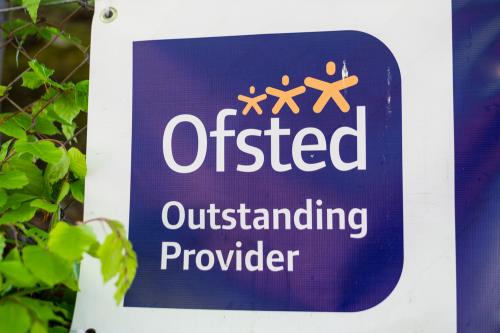19 Nov 2021

By Mark Richards,
Ofsted has published new advice for its inspection teams as the watchdog makes steps towards re-starting a full inspection programme during this academic year. The key takeaways of how inspectors will work with teachers and how Covid catch-up work will be judged are as follows.
Inspectors will assess schools’ use of tutors for Covid catch-up
Tutoring is a key aspect of the government’s plan for education recovery from the Covid pandemic. Ofsted will assess how well schools have used tutors for Covid catch-up. One thing that inspectors will look at very carefully is when pupils are taken out of their normal lessons to attend catch-up tutoring sessions.
Where this is the case, inspectors will assess to what extent the arrangements might be impacting on a student’s ability to access the full curriculum. A red flag will be raised if inspectors notice that a pupil is consistently missing lessons in one subject to receive catch-up tutoring in another. Inspectors will acknowledge and appreciate that some clashes may be unavoidable. However, they will also look at how the school has planned and managed the timetabling, and what steps have been taken to ensure that pupils catch up on any missed lessons.
Teachers won’t be expected to lead on more than one ‘deep dive’
Ofsted now gathers evidence for its curriculum-focused school inspections through ‘deep dives’ into particular subjects. Inspectors have been reminded that they need to understand that in smaller schools there may not be a separate lead for each individual subject. Schools are not expected to follow any particular curriculum or staffing approach.
Inspectors have been asked to avoid carrying-out ‘deep dives’ of more than one subject, if they fall under the responsibility of the same curriculum lead.
Inspectors should not provide ‘mocksteds’
Ofsted inspectors have been told not to provide consultancy services to schools, such as ‘mocksteds.’ Inspectors have also been instructed not to carry out or train on mock deep dives, or to provide training on ‘how to pass’ inspections.
Such activity will be seen as a conflict of interest, as well as a breach of an inspector’s terms and conditions. Inspectors are not allowed to refer to themselves as an ‘Ofsted Inspector’ when offering commercial services. Similarly, they should never claim to speak on the behalf of Ofsted, unless they have explicit instruction to do so from the inspectorate.
Always mention off-rolling by name
Inspectors will now ensure they always make it clear to the school’s leaders where they find off-rolling. They will refer to the practice by name. Similarly, if inspectors find evidence of off-rolling taking place, it will be specifically referred to as such in inspection reports.
No early notice of inadequate judgements will be given to councils
Local councils will no longer be given early notice of provisional inadequate judgements that are going to be made on schools following an inspection. Local authorities will now only be informed when a final moderated judgement has been agreed. The only exception will be if Ofsted decides that there are safeguarding issues regarding the school that the local authority need to be notified of due to a council’s overall responsibility for safeguarding.
RELATED POSTS
1. How to Make a Remote Learning Lesson Plan
2. Covid-19 and Children’s Mental Health
3. COVID-19 and the Impact on Special Educational Needs Provision
4. How to prepare a 5-minute lesson plan
5. Should technology be used more in lessons?
We encourage our readers to share their knowledge.
Do you have an idea, view, opinion or suggestion which would interest others in the education sector?
Are you a writer? Would you like to write and have your article published on The Educator?
If you are connected with the education sector or would like to express your views, opinion on something required policymakers’ attention, please feel free to send your contents to editorial@theeducator.com